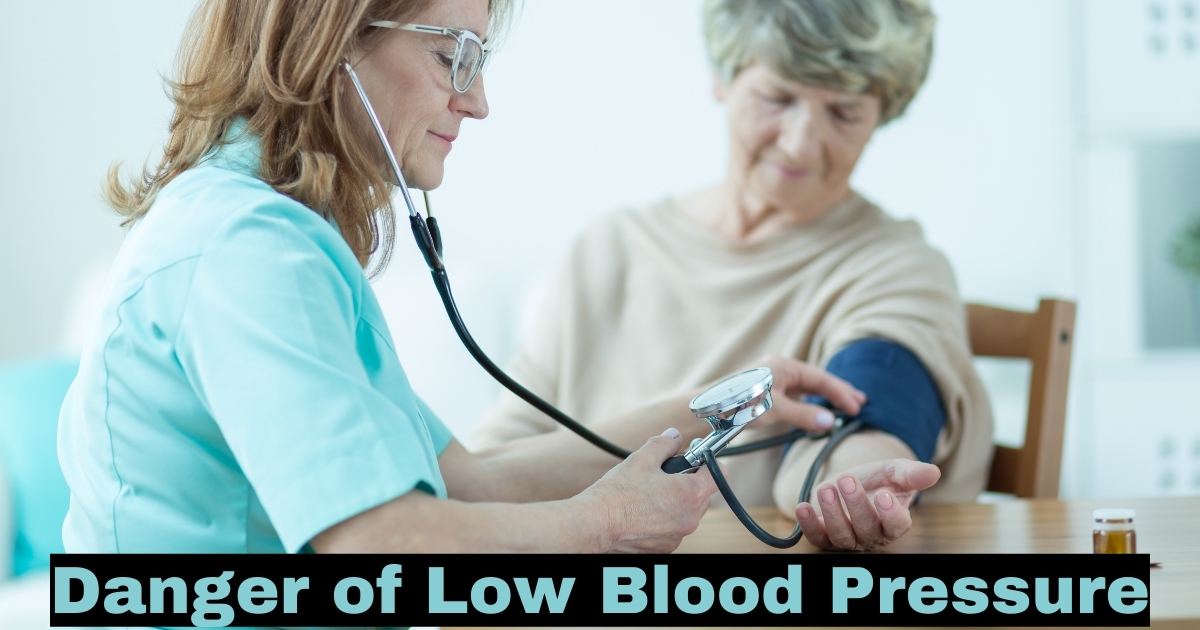Picture this: Sarah, a high school student, wakes up one morning feeling unwell. She brushes it off, thinking it’s just a passing bug. But as the days go by, her symptoms worsen. Eventually, she finds herself in the emergency room, diagnosed with a preventable illness that could have been avoided with the proper knowledge.
This scenario is all too common. Many people need to gain a basic understanding of how to maintain their health and prevent diseases. But it doesn’t have to be this way. This guide will delve into why health education is important in promoting wellness and preventing avoidable health issues.
Table of Contents
ToggleThe Foundation of Preventive Healthcare
Health education serves as the cornerstone of preventive healthcare. According to the Centers for Disease Control and Prevention (CDC), preventive healthcare can save lives and reduce healthcare costs by billions of dollars each year. By promoting healthy behaviors and lifestyles, health education empowers individuals to take control of their well-being.
For instance, educating individuals about the dangers of smoking and the benefits of quitting has contributed to a significant decline in smoking rates over the past few decades. Additionally, preventive healthcare extends beyond individual behaviors to encompass community-wide initiatives such as vaccination programs and screenings for hypertension and diabetes. Let’s understand why health education is important?
The Impact on Public Health
Investing in health education is not just about individual well-being but improving public health. By equipping communities with the knowledge and skills they need to lead healthier lives, we can reduce the burden on healthcare systems and create a more resilient society.
Conclusion
In conclusion, health education is vital in promoting wellness and preventing diseases. By empowering individuals and communities with the knowledge they need to make informed decisions about their health, we can build a healthier future for everyone. Let’s invest in education today to create a healthier tomorrow.
Empowering Individuals Through Knowledge

Let’s dive deeper into how health education empowers individuals to take control of their well-being. Imagine a world where everyone understands the importance of nutrition, exercise, and regular health check-ups. In this world, people are equipped with the knowledge and skills they need to lead healthier lives.
The Power of Information
Knowledge is power, especially when it comes to health. When individuals are educated about their bodies and how to care for them, they become proactive in managing their health. According to the World Health Organization (WHO), health education is essential for promoting health literacy, which is understanding and using health information effectively.
Preventing Disease Through Education
One of the primary goals of health education is to prevent disease. We can significantly reduce the prevalence of common health issues by teaching people about the risk factors associated with various illnesses and how to avoid them. For example, educating individuals about the importance of regular exercise and a balanced diet can help prevent obesity, a leading risk factor for chronic diseases such as diabetes and heart disease.
Breaking Barriers to Healthcare Access
In addition to preventing disease, health education also helps to break down barriers to healthcare access. Many people need to be made aware of the resources available to them and how to navigate the healthcare system effectively. By providing education about available services and how to access them, we can ensure that everyone has the opportunity to receive the care they need.
Empowering Communities for Change
Health education doesn’t just benefit individuals; it also empowers communities to create positive change. When people come together to learn about health issues affecting their community, they can work collaboratively to address them. From organizing health fairs to advocating for policy changes, educated communities have the power to make a real difference in improving public health.
Conclusion
In conclusion, health education is a powerful tool for promoting wellness and preventing disease. By empowering individuals with the knowledge they need to make informed decisions about their health, we can create healthier communities and a brighter future for all. Let’s continue to invest in education and empower individuals to take control of their well-being.
Addressing Healthcare Disparities
Imagine a world where everyone has equal access to healthcare, regardless of their background or socioeconomic status. Unfortunately, this is not the reality we live in. Healthcare disparities persist, with minority and underserved populations facing barriers to accessing quality care.
How Health Education Helps
Health education plays a crucial role in addressing these disparities by providing tailored information and resources to communities in need. By offering culturally sensitive materials and programs, we can reach underserved populations and empower them to take charge of their health. For example, providing educational sessions in multiple languages or partnering with community organizations can help bridge the gap and ensure everyone can access the care they deserve.
Nurturing Health Literacy in Communities

Health literacy is the foundation of good health. It’s about understanding health information and using it to make informed decisions. Yet, many people need help with health literacy, which can lead to misunderstandings, missed diagnoses, and poor health outcomes.
How Health Education Improves Health Literacy
Health education provides the tools and knowledge people need to navigate the complex world of healthcare. By offering clear, accurate, and easy-to-understand information, we can empower individuals to make informed decisions about their health. Health education programs teach practical skills, like reading nutrition labels, interpreting test results, and communicating with healthcare providers, ensuring everyone has the knowledge they need to stay healthy.
Promoting Healthy Behaviors and Lifestyles

Healthy behaviors are the cornerstone of good health. Yet, many people struggle to adopt healthy habits in their daily lives. From poor nutrition to lack of physical activity, unhealthy behaviors can take a toll on our bodies and minds.
How Health Education Encourages Healthy Behaviors
Health education provides people the motivation and support to make positive life changes. By offering evidence-based information and practical strategies, we can empower individuals to take control of their health. Whether teaching the benefits of regular exercise or the importance of a balanced diet, health education equips people with the tools they need to live healthier, happier lives.
Enhancing Access to Quality Healthcare
In an ideal world, everyone would have easy access to quality healthcare. However, the reality is that many individuals, especially those in underserved communities, face significant barriers to accessing the care they need. Health education plays a crucial role in breaking down these barriers and ensuring everyone can access the healthcare services they deserve.
How Health Education Enhances Access to Healthcare
Health education empowers individuals to navigate the complexities of the healthcare system and advocate for their health needs. By providing information about available services, how to access them, and how to communicate effectively with healthcare providers, health education helps individuals overcome obstacles to care. Additionally, by raising awareness about the importance of regular check-ups and preventive screenings, health education encourages people to seek healthcare proactively rather than waiting until a health issue becomes urgent.
Fostering Mental and Emotional Well-being
Mental and emotional well-being are as important as physical health, yet they are often overlooked. Mental health issues, such as depression, anxiety, and stress, can have a profound impact on an individual’s overall quality of life. Health education fosters mental and emotional well-being by promoting awareness, reducing stigma, and supporting those in need.
How Health Education Fosters Mental and Emotional Well-being
Health education raises awareness about mental health issues and teaches individuals how to recognize the signs and symptoms of common mental health conditions. By reducing stigma and promoting open dialogue about mental health, health education creates a supportive environment where individuals feel comfortable seeking help when they need it. Additionally, health education provides individuals with coping strategies and self-care techniques to manage stress, improve resilience, and enhance overall well-being.
The Role of Education in Disease Prevention

Prevention is better than cure, and health education is a powerful tool for preventing disease before it starts. By empowering individuals with knowledge about risk factors, warning signs, and preventive measures, health education helps to reduce the incidence of common health issues and improve overall public health outcomes.
How Education Prevents Disease
Health education teaches individuals the importance of healthy lifestyle behaviors, such as regular exercise, balanced nutrition, and tobacco cessation, which can significantly reduce the risk of chronic diseases like heart disease, diabetes, and cancer. Additionally, health education promotes awareness about the importance of vaccinations, screenings, and early detection measures for preventing infectious diseases and detecting health issues in their early stages when treatment is most effective.
Bridging the Gap: Health Education in Schools
Schools play a critical role in shaping young people’s health behaviors and attitudes. Health education curriculum provides students with essential knowledge and skills to make informed decisions about their health and well-being both now and in the future. By incorporating health education into school curricula, we can empower the next generation to lead healthier lives and build a healthier society.
The Importance of Health Education in Schools
The health education curriculum covers various topics, including nutrition, physical activity, mental health, substance abuse prevention, and sexual health. By providing comprehensive health education, schools equip students with the knowledge and skills to make healthy choices and navigate challenging situations. Additionally, school health education helps create a supportive environment where students feel comfortable discussing health-related topics and seeking help when needed.
Creating Sustainable Public Health Initiatives
Public health initiatives are essential for promoting population health and addressing health disparities on a larger scale. Health education is vital in creating sustainable public health initiatives by raising awareness, facilitating behavior change, and mobilizing communities to take action.
How Health Education Drives Public Health Initiatives
Health education provides the foundation for public health initiatives by educating individuals and communities about the importance of health promotion and disease prevention. By empowering individuals with knowledge and skills, health education fosters a sense of ownership and responsibility for one’s and the community’s health. Additionally, health education facilitates collaboration and partnership among various stakeholders, including government agencies, healthcare providers, community organizations, and individuals, to develop and implement effective public health programs and policies.









